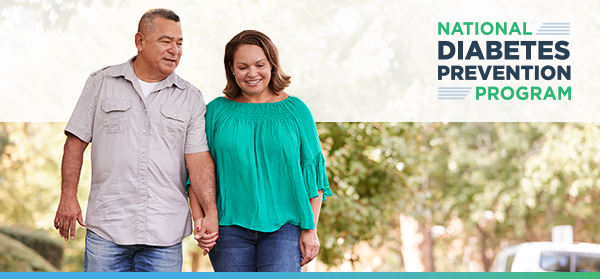|
¡Vive la vida al máximo! Live life to the max, right? Well, that’s what most Hispanics/Latinos learn early on from their family members. The traditions we value, such as enjoying life to the fullest – especially with loved ones – are passed on through the generations.
Unfortunately, Hispanics/Latinos are more than twice as likely to develop prediabetes and type 2 diabetes than non-Hispanics. Prediabetes means that blood sugar levels are higher than normal, but not yet high enough to be diagnosed as type 2 diabetes. A person with prediabetes is at higher risk for developing type 2 diabetes and other serious health problems, including heart disease and stroke. You may have prediabetes and be at risk for type 2 diabetes if you:
This Diabetes Alert Day® on March 26, take the first step to better health for you and your family. Take a simple, one-minute quiz at doihaveprediabetes.org to find out your prediabetes risk score. Prediabetes often has no clear symptoms, so it’s important to talk to your doctor about getting your blood sugar tested if you have any risk factors. If you have prediabetes, don’t let the “pre” in prediabetes fool you – prediabetes is a serious health condition that can develop into even more serious health complications like type 2 diabetes, heart disease, and stroke. But that doesn’t mean that if you have prediabetes you can’t live life to the max. You can do something about it and live a healthy and happy live! Participating in a lifestyle change program recognized by the Centers for Disease Control and Prevention (CDC) can cut your risk for developing type 2 diabetes in half. The CDC-led National Diabetes Prevention Program can help you make healthy changes to achieve lasting results, such as losing weight, eating healthier, and getting regular physical activity. The best part of the program is that you won’t be alone on your journey to healthier habits. Lifestyle change program participants work with a trained lifestyle coach and share experiences with other participants who have the same goals and challenges. Your lifestyle coach and fellow participants are there to help you get started and keep you motivated as you learn new skills and face challenges. Together you will find the solutions that work for you and help you be successful. Many who have participated in the program say they have more energy, less stress, and better checkups. Ask your doctor or health care provider to refer you to a CDC-recognized lifestyle change program near you. You can also ask if Medicare will cover for your participation in the program. For more information about prediabetes and your risk, check with your health care provider. Comments are closed.
|
The National Center for Farmworker HealthImproving health care access for one of America's most vulnerable populations Archives
March 2024
Categories
All
|


 RSS Feed
RSS Feed